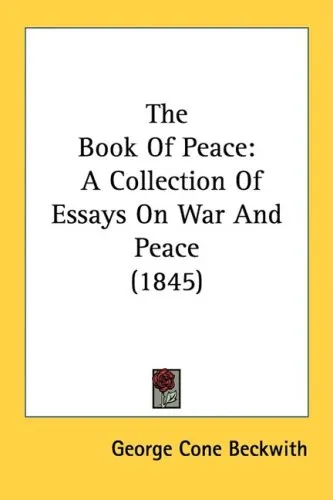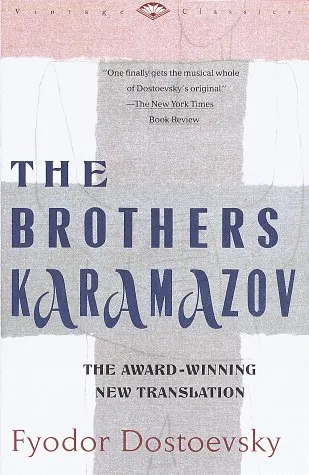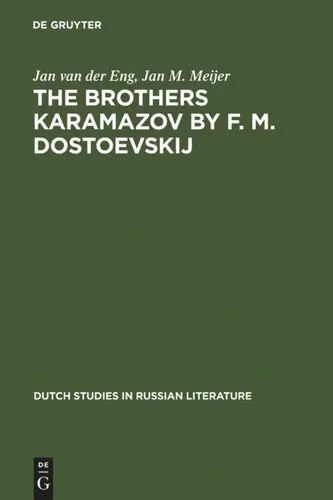The Book Of Peace: A Collection Of Essays On War And Peace 1845
4.0
بر اساس نظر کاربران

شما میتونید سوالاتتون در باره کتاب رو از هوش مصنوعیش بعد از ورود بپرسید
هر دانلود یا پرسش از هوش مصنوعی 2 امتیاز لازم دارد، برای بدست آوردن امتیاز رایگان، به صفحه ی راهنمای امتیازات سر بزنید و یک سری کار ارزشمند انجام بدینکتاب های مرتبط:
معرفی کتاب: The Book Of Peace: A Collection Of Essays On War And Peace 1845
کتاب The Book Of Peace: A Collection Of Essays On War And Peace 1845 اثر جورج کن بکویث، مجموعهای از مقالاتی است که به بررسی عمیق دوگانگی و پیچیدگی جنگ و صلح در طول تاریخ پرداختهاست. این کتاب با ترکیب دیدگاههای فلسفی، تاریخی و اخلاقی به تحلیل معضلات جنگ میپردازد و راهکارهایی برای دستیابی به صلح پایدار ارائه میدهد.
خلاصهٔ تفصیلی کتاب
کتاب در یک زمینهٔ تاریخی نوشته شده که جنگ به عنوان یکی از اصلیترین چالشهای بشری به شمار میرفت. جورج کن بکویث با بهرهگیری از تعداد زیادی مقاله و دیدگاه، تلاش میکند تا خوانندگان را با تأثیرات مخرب جنگ و اهمیت صلح آشنا کند. مقالات در این کتاب، صلح را نه تنها به عنوان غیاب جنگ، بلکه به عنوان یک وضعیت فعال و پویا از همکاری بین ملل ارائه میکند.
هر فصل از کتاب به موضوعات معینی نظیر تحلیل دلایل اجتماعی و اقتصادی جنگ، بررسی ارتباطات بینالمللی و پیشنهاد راهکارهایی برای جلوگیری از نزاعها میپردازد. نویسنده به ویژه بر این نکته تأکید دارد که آموزش و تعهدات اجتماعی میتوانند به عنوان ابزاری مؤثر برای ترویج فرهنگ صلح به کار روند.
نکات کلیدی
- تأکید بر اهمیت همکاری جهانی برای دستیابی به صلح پایدار.
- بررسی دیدگاههای گوناگون تاریخی، فلسفی و اخلاقی دربارهٔ جنگ و صلح.
- ارائهٔ رهنمودها و راهکارهایی فرهنگی و آموزشی برای جلوگیری از نزاعها.
- تحلیل تأثیرات مخرب جنگ بر جوامع و اقتصادها.
نقلقولهای معروف از کتاب
جنگ نه تنها نابودی فیزیکی، بلکه نابودی روحی و معنوی را نیز به دنبال دارد.
صلح حالتی از تعامل و تفاهم میان ملل است که همواره باید فعالانه پرورش یابد.
چرا این کتاب مهم است
کتاب The Book Of Peace به عنوان یک منبع مهم در پژوهشهای مربوط به صلح و جنگ معروف است. این اثر با ترکیب دیدگاههای مختلف و پیشنهاد راهکارهای عملی، اهمیت آموزش و آگاهی را برای ترویج صلح در جهان امروز برجسته میکند. علاوه بر این، تاریخچه و تحلیلهای عمیق آن به خوانندگان کمک میکند تا به ارزشها و چالشهای واقعی پیرامون صلح و جنگ درک دقیقتری پیدا کنند.
Introduction
"The Book Of Peace: A Collection Of Essays On War And Peace" is a seminal work from the mid-19th century, authored by George Cone Beckwith. This book is a comprehensive exploration of the pervasive themes of war and peace, a dichotomy that has shaped human civilization throughout history. Written in 1845, Beckwith's work is a profound compilation of thoughts, arguments, and philosophies advocating for peace and critiquing the institution of war. The book is not just a product of its time but resonates with timeless relevance, urging readers to reflect on their understanding of peace and the mechanisms of conflict.
Detailed Summary of the Book
"The Book Of Peace" is divided into a collection of essays, each meticulously crafted to address various aspects of war and peace. Beckwith deftly analyzes the historical context of warfare, drawing from examples across different eras to emphasize the enduring nature of conflict and its debilitating effects on human progress and morality. The essays delve into religious, ethical, and socio-political dimensions of peace, questioning the moral justifications often provided for war.
Beckwith’s arguments are built on a foundation of moral philosophy, often drawing from scripture and religious teachings to fortify his advocacy for peace. He challenges commonly held beliefs that war is an unavoidable aspect of human nature, offering counterarguments that highlight the possibility of sustained peace through deliberate and moral effort. The book serves as both a critique of contemporary attitudes towards warfare and an offering of hope that peace can be realized through collective will and ethical governance.
Key Takeaways
- War is not an inherent necessity but a constructed choice that reflects societal failures.
- Peace requires active effort and moral courage from individuals, leaders, and nations.
- The promotion of peace is deeply intertwined with religious and ethical principles.
- Critical examination of war can lead to better understanding and development of peace strategies.
- Individual and collective responsibility are crucial in the pursuit of a peaceful society.
Famous Quotes from the Book
Beckwith's eloquence is captured in several striking passages that underscore his perspectives. Here are a few notable quotes:
"The horrors of war are neither inevitable nor necessary; they are a testament to humanity's greatest failures."
"Peace is not merely the absence of conflict but the presence of justice, harmony, and goodwill."
"A society that invests in peace will reap the boundless rewards of prosperity and human flourishing."
Why This Book Matters
The relevance of "The Book Of Peace" transcends the period in which it was written, offering insights that are applicable even in today's world, fraught with conflicts of various scales. Beckwith's work encourages readers to challenge the normalization of war and consider alternatives grounded in ethical and moral reasoning. It acts as a timely reminder of the destructive power of war and the transformative potential of peace.
In a contemporary context, Beckwith’s essays provide a foundation for understanding the importance of peace education and conflict resolution. They serve as a call to action for policymakers, educators, and individuals to prioritize peace in personal and collective agendas. By revisiting Beckwith's timeless arguments, we are invited to reimagine a world where peace is not a distant ideal but an attainable reality.
دانلود رایگان مستقیم
شما میتونید سوالاتتون در باره کتاب رو از هوش مصنوعیش بعد از ورود بپرسید
دسترسی به کتابها از طریق پلتفرمهای قانونی و کتابخانههای عمومی نه تنها از حقوق نویسندگان و ناشران حمایت میکند، بلکه به پایداری فرهنگ کتابخوانی نیز کمک میرساند. پیش از دانلود، لحظهای به بررسی این گزینهها فکر کنید.
این کتاب رو در پلتفرم های دیگه ببینید
WorldCat به شما کمک میکنه تا کتاب ها رو در کتابخانه های سراسر دنیا پیدا کنید
امتیازها، نظرات تخصصی و صحبت ها درباره کتاب را در Goodreads ببینید
کتابهای کمیاب یا دست دوم را در AbeBooks پیدا کنید و بخرید
1291
بازدید4.0
امتیاز50
نظر98%
رضایتنظرات:
4.0
بر اساس 0 نظر کاربران
"کیفیت چاپ عالی بود، خیلی راضیام"
Questions & Answers
Ask questions about this book or help others by answering
No questions yet. Be the first to ask!






